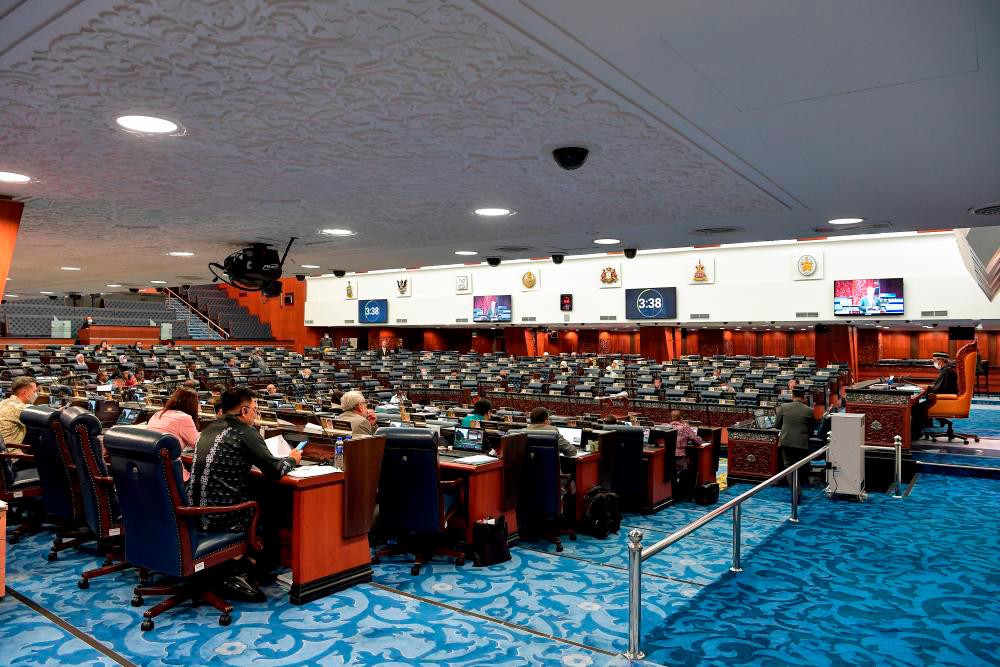EVERYONE is aware of the current issue involving Kedah and Penang. It has triggered many discussions and is hotly debated among local academicians, historians dan legal practitioners.
It was also raised recently by the prime minister and several MPs in the Parliament.
Questions need to be asked, do we need to waste our time and energy focusing on and discussing this kerfuffle further?
History has taught us that Penang originally belonged to Kedah.
However, many things changed after the arrival of the British in the late 18th century.
There have been many discussions and debates among local academics over the sovereignty status of Penang.
However, they were only academic discussions and debates until today.
It is crucial to note that since Malaysia gained independence in 1957, it has been guided by the Federal Constitution.
The constitution, which came into force in 1957 as the Constitution of the Federation of Malaya and was amended in 1963 to form the Constitution of Malaysia. It is the supreme law of the country and it contains a total of 183 Articles.
The supremacy of the Federal Constitution is clearly stated under Article 4(1) of the Federal Constitution which says: “The Constitution is the supreme law of the Federation and any law which is passed after Merdeka Day (Aug 31, 1957) which is inconsistent with the Constitution shall to the extent of the inconsistency be void.”
The Federal Constitution is a written legal document influenced by two previous documents, the Federation of Malaya Agreement of 1948 and the Independence Constitution of 1957.
The Federation was initially called the Federation of Malaya and it adopted its present name Malaysia when the states of Sabah, Sarawak and Singapore (now independent) became part of the Federation.
The Federal Constitution establishes the Federation as a constitutional monarchy, having the Yang di-Pertuan Agong as the Head of State.
It provides for the establishment and organisation of three main branches of the government: the bicameral legislative branch called Parliament, which comprises the House of Representatives (Dewan Rakyat) and the Senate (Dewan Negara); the executive branch led by the prime minister and his cabinet ministers, and the judicial branch headed by the Federal Court.
The Federal Constitution also provides the powers for the federal government and the state governments.
It also guarantees many human rights values and principles of the citizen.
It is interesting to note that the Federal Constitution also guarantees the existence of states in Malaysia.
Article 1 of the Federal Constitution clearly states that:
(1) The Federation shall be known, in Malay and in English, by the name Malaysia.
(2) The States of the Federation shall be Johor, Kedah, Kelantan, Malacca, Negeri Sembilan, Pahang, Penang, Perak, Perlis, Sabah, Sarawak, Selangor and Terengganu.
(3) Subject to Clause (4), the territories of each of the States mentioned in Clause (2) are the territories comprised therein immediately before Malaysia Day.
(4) The territory of the State of Selangor shall exclude the Federal Territory of Kuala Lumpur established under the Constitution (Amendment) (No. 2) Act 1973 (Act A206) and the Federal Territory of Putrajaya established under the Constitution (Amendment) Act 2001 [Act A1095] and the territory of the State of Sabah shall exclude the Federal Territory of Labuan established under the Constitution (Amendment) (No. 2) Act 1984 [Act A585], and all such Federal Territories shall be territories of the Federation.
This particular Article clearly indicates to us that the status of Penang, Kedah and all states in Malaysia is well recognised, guaranteed and protected by the highest law in the country.
Thus, it is important for us to respect the Federal Constitution.
Any changes to the current status or border of any state within the federation will require many processes and demand approval from many entities, including from the state itself.
Realistically, this is highly difficult to achieve.
Article 2 of the Federal Constitution clearly states that “Parliament may by law (a) admit other States to the Federation, and (b) alter the boundaries of any State, but a law altering the boundaries of a State shall not be passed without the consent of that State (expressed by a law made by the Legislature of that State) and of the Conference of Rulers”.
Amending the Federal Constitution in order to remove any state from its existing status will not happen.
We need to be realistic on this issue as well.
So, instead of focusing so much on the issue concerning the existence status of a state, the focus should be given more on improving the economy and addressing the issue of the cost of living.
The country’s Court of Arms motto states “Unity is Strength” and all states in Malaysia should stay united in facing internal and global challenges.
Dr Muzaffar Syah Mallow is an associate professor in Faculty of Syariah and Law at Universiti Sains Islam Malaysia. Comments: letters@thesundaily.com









